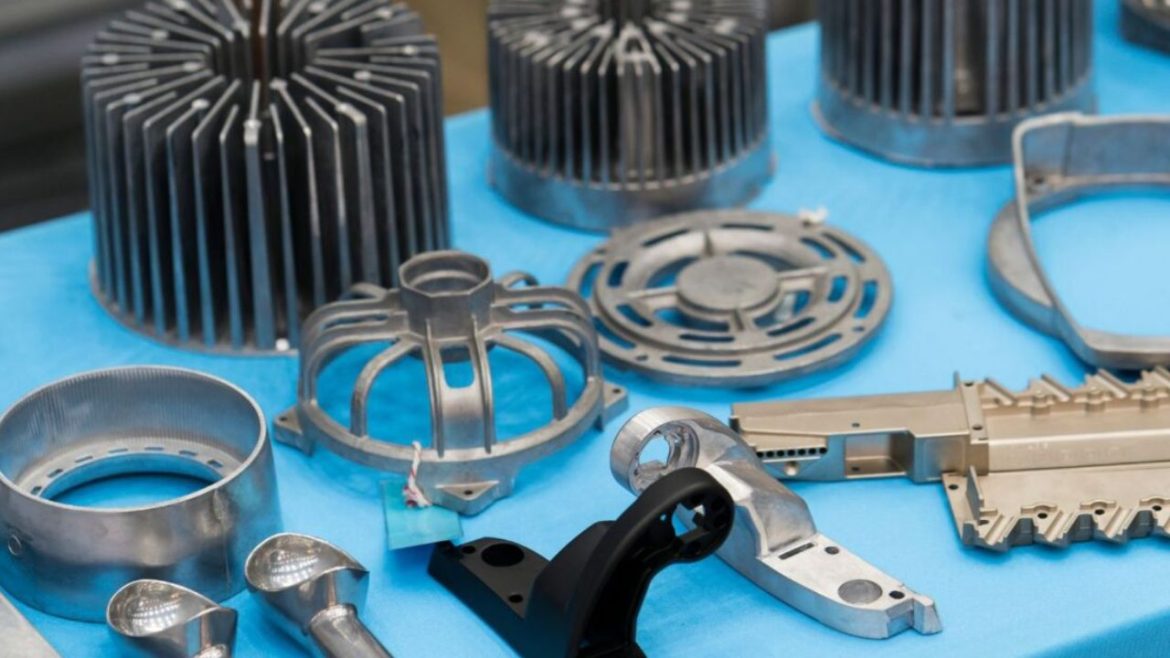Custom forging is a renowned metal fabrication technique that delivers exceptional precision and strength in manufacturing various components. From automotive to aerospace, its applications are diverse and vital. In the realm of metal fabrication, custom forging stands out as a highly sought-after technique that offers unparalleled precision, strength, and versatility.
Whether it’s for industrial machinery, automotive components, or aerospace applications, custom forging plays a crucial role in manufacturing high-quality metal parts. This article delves into the world of custom forging, exploring its process, benefits, and diverse applications.
The Process of Custom Forging
Custom forging involves shaping metal through the application of localized compressive forces. It is a process that dates back centuries and has evolved to incorporate modern technologies, resulting in enhanced precision and efficiency. Let’s delve into the key steps involved in custom forging:
Material Selection:
Custom forging can be performed on various metals, including steel, aluminum, titanium, and alloys. The choice of material depends on the specific requirements of the part being forged, considering factors such as strength, durability, and resistance to corrosion.
Heating:
The chosen metal is heated to a specific temperature, known as the forging temperature. Heating is essential to enhance the metal’s malleability, making it easier to shape.
Shaping:
Once heated, the metal is placed on a die or an anvil and subjected to compressive forces using a hammer or a press. This force causes the metal to deform and take the shape of the die or the anvil.
Finishing:
After the initial shaping, the forged part undergoes various finishing processes, such as trimming, machining, and heat treatment, to achieve the desired dimensions, surface finish, and mechanical properties.
Benefits of Custom Forging
Custom forging offers several notable advantages over other metal fabrication methods, making it a preferred choice in numerous industries. Some key benefits include:
Strength and Durability:
Custom-forged parts exhibit exceptional strength due to the grain structure of the metal, resulting in improved mechanical properties, including increased fatigue resistance and impact strength.
Precision and Consistency:
With custom forging, intricate shapes, and complex geometries can be achieved with exceptional precision and repeatability. This ensures consistency in the manufactured parts, meeting the exact specifications of the design.
Enhanced Material Integrity:
Custom forging eliminates or minimizes internal defects and inconsistencies in the metal, enhancing its structural integrity. This leads to parts that are more reliable and less prone to failure.
Cost Efficiency:
Despite the initial investment required for custom forging tooling and equipment, the long-term cost benefits are significant. The high strength-to-weight ratio of forged parts reduces the material needed, resulting in lower costs, improved efficiency, and reduced waste.
Diverse Applications of Custom Forging
The versatility of custom forging makes it suitable for a wide range of applications across various industries. Some notable examples include:
Automotive Industry:
Custom forged components find applications in critical automotive parts, such as crankshafts, connecting rods, and suspension components. The superior strength and durability of forged parts contribute to improved performance, safety, and longevity of vehicles.
Aerospace and Defense:
Custom forging plays a vital role in manufacturing aerospace components, including turbine disks, landing gear parts, and structural components. The ability to withstand high-stress environments and maintain dimensional stability under extreme conditions makes custom forging indispensable in this industry.
Oil and Gas Sector:
Custom-forged parts are widely used in the oil and gas industry, where they endure harsh operating conditions and high-pressure environments. Forged valves, flanges, and drilling equipment ensure the reliability and safety of operations.
Industrial Machinery:
Custom forging finds application in heavy machinery, construction equipment, and power generation systems. Components like gears, shafts, and cylinders require the superior strength and durability offered by custom forging to withstand demanding operational requirements.
Conclusion
Custom forging stands as a highly effective metal fabrication technique that combines strength, precision, and durability. Its ability to shape metals into intricate forms while enhancing their mechanical properties makes it a preferred choice in diverse industries.
With custom forging, manufacturers can achieve parts of exceptional quality, ensuring reliability and performance in critical applications. From automotive and aerospace to oil and gas and industrial machinery, custom forging plays an integral role in shaping the world around us, offering enhanced precision and strength in metal fabrication.
